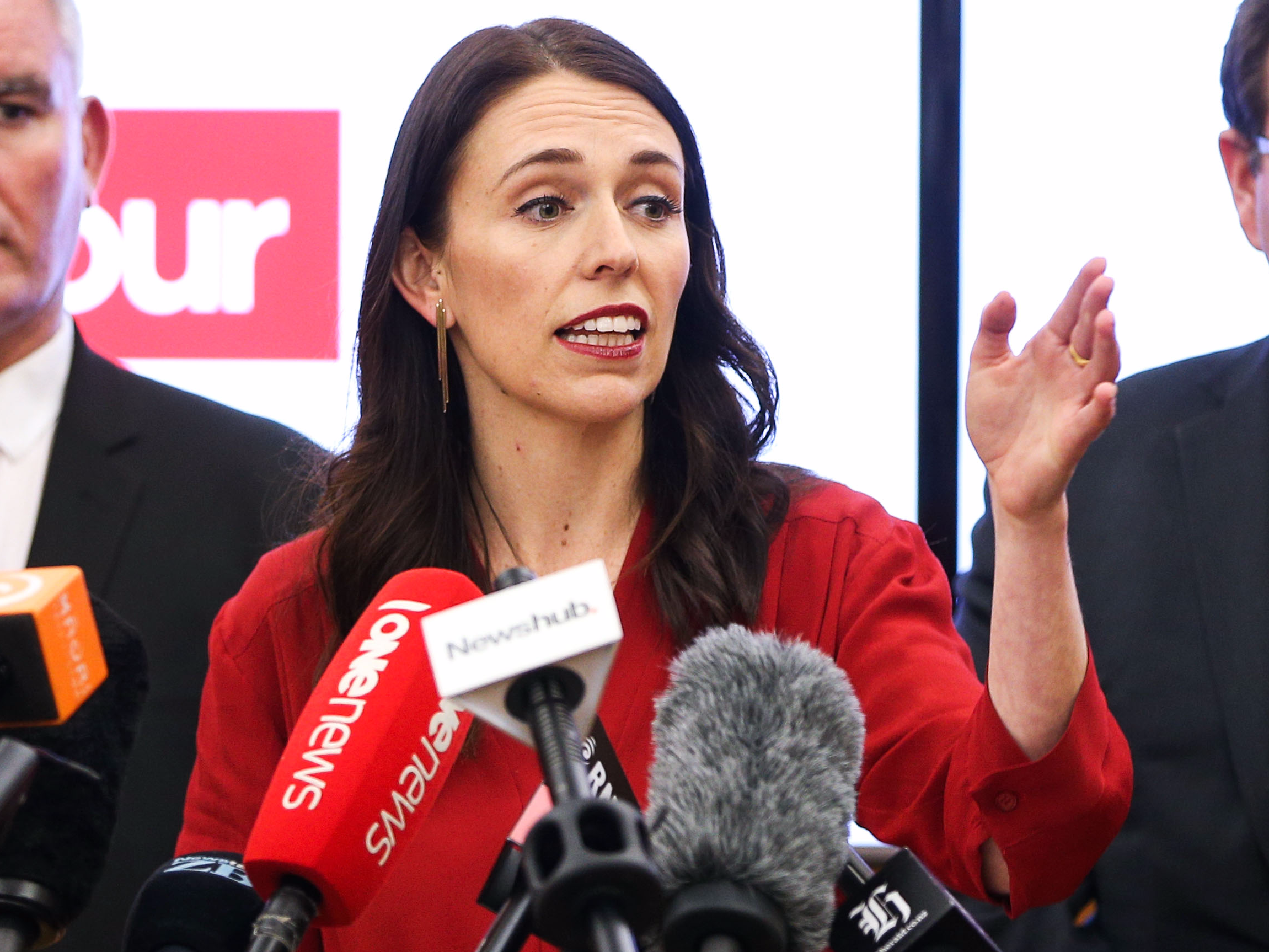In world politics, youth appears to be having a moment.
The past week has seen two people in their 30s – Austria’s Sebastian Kurz, 31; and New Zealand’s Jacinda Ardern, 37 – come out on top in their countries’ national elections, and are set to take high office.
Earlier in 2017, political events in France and Ireland also produced leaders in their 30s.
It is a stark contrast to just a year before, when UK Prime Minister David Cameron (then 49) was succeeded by 59-year-old Theresa May, and 55-year-old US president Barack Obama handed over to Donald Trump, 70.
Scroll down to see the young people who have ascended to the heights of political power.
10. FRANCE: Emmanuel Macron, 39 (born 21 December 1977)

Macron won a resounding victory in the 2017 French presidential election, beating Marine Le Pen by a margin of almost two votes to one.
Once a minister in the administration of previous president François Hollande, Macron broke away from the establishment Socialist party to form his own political movement and take a tilt at the presidency.
En Marche!, his political movement, has since secured a sizable majority in the French National Assembly, though Macron's own popularity has started to dip precipitously.
9. SAN MARINO: Matteo Fiorini, 39 (born 10 February 1978)

Fiorini is a Captain Regent of San Marino.
San Marino is a tiny principality of 33,000 people, entirely surrounded by Italy.
It has two formal heads of state, known as Captains Regent, who hold equal power. Fiorini's co-captain is also on this list.
They are chosen from San Marino's elected legislative body, the 60-person Great and General council, which picks two of its own number to serve six-month terms.
The pair's term runs out in April 2018.
8. ESTONIA: Jüri Ratas, 39 (born 2 July 1978)

Ratas became Estonia's leader in November after the country's previous political settlement collapsed.
As leader of the Centre Party he negotiated a new coalition in the country with himself at the helm.
He previously served as mayor of Tallinn, Estonia's capital, from 2005 to 2007, and was later elected as a member of the Riigikogu, the national legislature.
He took over as leader of his party in November 2016 and became Prime Minister less than a month later.
7. IRELAND: Leo Varadkar, 38 (born 18 January 1979)

Varadkar took over as Taoiseach (similar to prime minister) of Ireland in 2017 when his predecessor resigned.
He held several ministerial posts in the administration of Enda Kenny, and became leader of the Fine Gael party when Kenny stepped down.
He was confirmed by the Irish legislature in his position, and is the youngest person ever to hold it. Varadkar is also notable for being the first openly gay leader of Ireland.
6. BHUTAN: Jigme Khesar Namgyel Wangchuck, 37 (born 21 February 1980)

Khesar is the fourth "Dragon King" of Bhutan, a Himalayan nation which borders India and China.
He took power at the age of 26 when his father, Jigme Singye Wangchuck, abdicated.
Khesar studied in the United States and attended Magdalen College, Oxford, before returning to Bhutan. He has said one of the aims of his reign is to strengthen democracy in his country.
5. NEW ZEALAND: Jacinda Ardern, 37 (born 26 July 1980)

Ardern, leader of the New Zealand Labour Party, became Prime Minister in October after a close-fought election.
She has risen exceptionally quickly through the ranks of New Zealand politics, seizing the country's highest office less than a year after entering parliament.
Ardern was elected MP for Mount Albert, a suburb of Auckland, at a by-election in February this year.
She was elected Labour leader in August, and entered a general election campaign shortly after. Her party did not win a majority but intends to govern in coalition with New Zealand's Green Party.
4. QATAR: Tamim bin Hamad Al Thani, 37 (born 3 June 1980)

Sheikh Tamim was 33 when he took over as Emir of Qatar when his father stepped down.
His elder brother Jasim bin Hamad bin Khalifa Al-Thani was originally due to inherit the throne, but renounced his claim in 2003, leaving the way clear.
Qatar has recently found itself in a diplomatic crisis thanks to a co-ordinated blockade by neighbouring states.
3. NORTH KOREA: Kim Jong Un, 34 (born 8 January 1983)

The Supreme Leader of North Korea has been groomed for power for most of his life, and took control of the Hermit Kingdom in 2011, at the age of 30.
A diehard basketball fan who was educated at a private school in Switzerland, Kim has had a life unlike any other world leader.
His nuclear ambitions and bellicose rhetoric also mean he occupies a place on the world stage completely out of proportion with his nation's power.
You can read more about his wild ascent to power here.
2. SAN MARINO: Enrico Carattoni, 32 (born 18 May 1985)

1° Ottobre 2017 - Matteo Fiorini e Enrico Carattoni sono i nuovi Capitani Reggenti della Repubblica di San Marino pic.twitter.com/Eql6lAJRDQ
— visitsanmarino (@VisitSanMarino) October 1, 2017
Carattoni (on the right in the picture with the ceremonial neckwear) was until mid-October the youngest national leader on earth. He and Matteo Fiorini run San Marino.
1. AUSTRIA: Sebastian Kurz, 31 (born 27 August 1986)

Kurz's Österreichische Volkspartei (Austrian People's Party) came out on top in elections this October.
Although his party did not win an outright majority, the electoral mathematics of the country's National Council means that he is likely to form a new government and become Chancellor.

